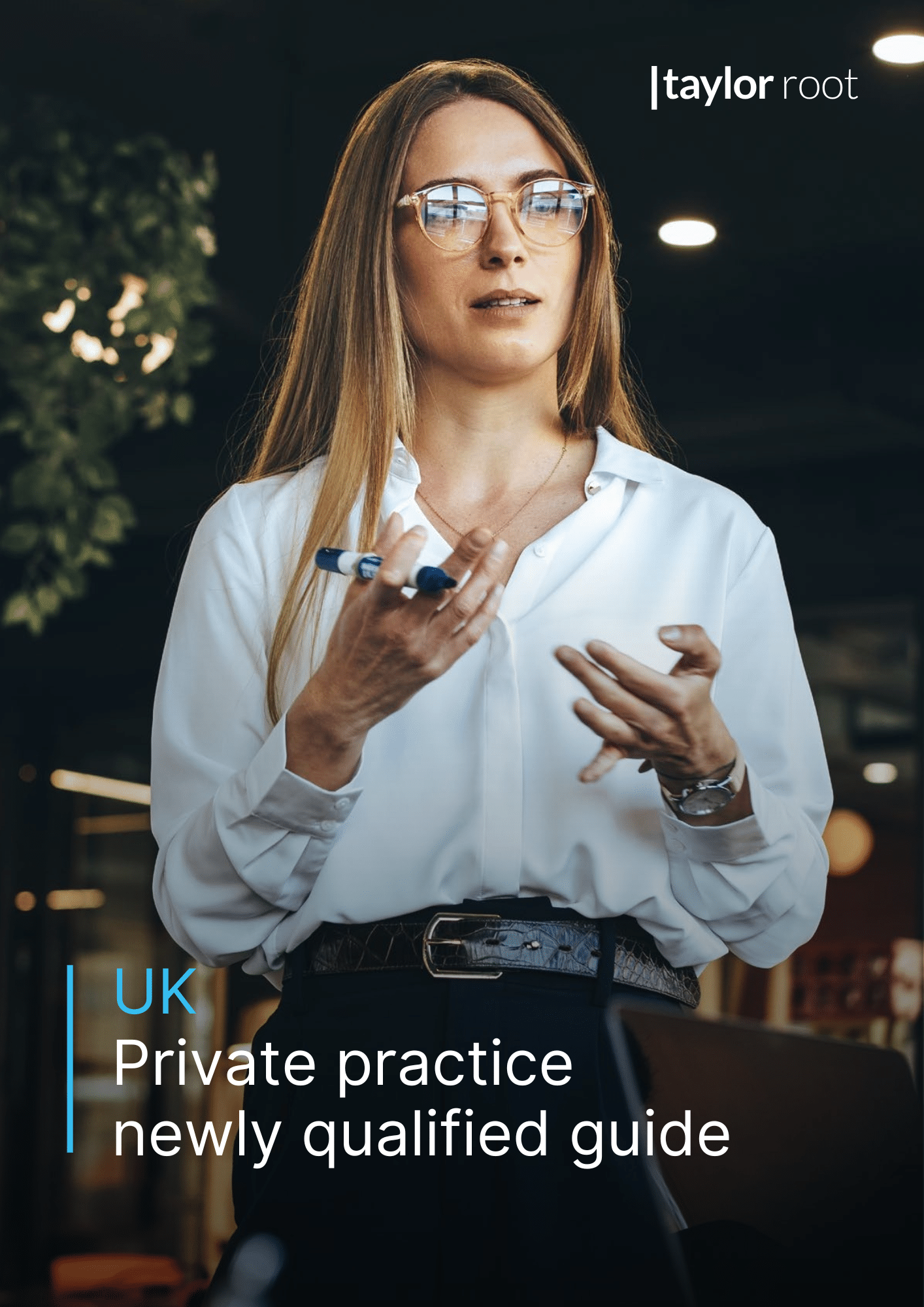Private practice newly qualified guide
Your guide to looking for a newly qualified lawyer role

We have been helping law firms and businesses to hire newly qualified lawyers all around the world for decades.
We have built an exceptional reputation in the legal profession, attracting newly qualified lawyers and helping them to take their first steps in the profession. We then partner with them throughout their careers all the way to Partner, Legal Director and General Counsel positions – guiding them through the biggest decisions in their career journeys.
When to start looking for your newly qualified Associate role
You should start looking for your NQ role as soon as you – even if you don’t know yet whether or not you will be retained at your current firm.
We have put together a useful timeline to help guide you through the process, whether you are qualifying in March or September, here you can find advice on what to do at each stage.
NEWLY QUALIFIED JOB SEARCH TIMELINE
September/MARCH
Six months
before qualification
Research consultancies
See which agencies will be most suited to you and where you want your career to go. Gather as much information on them as possible, for example their locations and the law firms they work with.


October/APRIL
Five months
before qualification
Update your CV
Try to include as much information as possible about your training, including all your seats. If you spent time as a Paralegal, include that information. Even if you think your current law firm will retain you and you would like to stay, it is a good idea to update your CV and start to research the market.
Call consultancies
Calling recruitment consultancies is the best way to connect them in the first instance. This will establish a personal connection and will make you stand out. It is a chance to give a strong first impression. sell yourself well and set out what you think you might like to do post-qualification. Email your CV following your call.
November/MAY
Four months
before qualification
NQ roles will be released
It is around this time when law firms will start to release their NQ vacancies to begin in September or March.
CV submissions
Recruitment consultancies will start to speak to you about roles and start submitting your CV to law firms. A good recruiter will only submit your CV to law firms you have explicitly agreed to apply to. Keep track of where your CV is going.
Follow up
If you haven’t heard back from your recruitment contacts you should follow up. This will keep you front of mind.


December/JUNE
Three months
before qualification
Internal offers
This is when law firms will start to inform their trainees if they will be offered a permanent role upon qualification.
Interview stage 1
You should research the firm thoroughly before your first interview. Prepare some questions and research who you will be meeting. There might also be a technical test at this stage. Make sure you know your CV inside and out. Turn up on time and look smart! Usually a first stage is online. Arrange a call with your recruiter who will talk you through what to expect and give you specific tips on how to prepare.
Interview stage 2
This will give you an opportunity to meet some more senior members of the team. Again, make sure you research the Partners you will be meeting. This stage is usually more technical, your recruiter will be able to advise you.
January/JULY
Two months
before qualification
Interview stage 3
This might be a more informal meetings. Maybe coffee or drinks with other Associates or Senior Associates in the team. Remember the role is not yet yours and is very much part of the interview process. This is a chance for you to also see if you would like to work in the team and at the firm.


February/AUGUST
Offer
If the firm wants to make you an offer this will come via your recruitment consultant. NQ offers will be at the firms’ published NQ salary rate for that year.
Offer acceptance
If you accept an offer your consultant will help you through the process required by your new firm. This includes the collating of references and helping you turn down any offers you might have had internally.
Frequently asked questions
This depends on a few factors. For example, what you enjoy, the practice areas you did seats in during your training contract and the available options both at your existing law firm and externally. Each NQ season, we see a wide variety of opportunities come to market from private equity, employment, litigation and real estate, through to to white collar crime, private client and funds.
It is also worth considering your longer-term legal career goals and the kind of firm you want to work at. Do you want to be at an elite US firm, a big international law firm or a city boutique?
The type of firm you choose is a very personal choice and will depend on what you want to practise (given some firms specialise in certain areas) as well as the firm’s culture. You should consider the ethos of the firm, the working culture (including target hours and the work-life balance), the overarching values and the potential for career progression. Diversity, equity and inclusion might also be very important to you. What a firm stands for across all these areas is worth considering.
In order to find out about all these areas, you should ask lots of questions at your interviews, research online as much as you can and see if you can connect with current or past employers at your level.
There are a number of differences and similarities between these law firms and, depending on where you work, your legal career could progress in different ways.
Structure: UK firms are generally more structured with a very distinct hierarchy, from Partners down through Senior Associate and Associate. This is seen less in US firms and they tend to have a flatter structure.
Compensation: Historically, US firms pay higher salaries, however, all of the elite practices have started to be more competitive around compensation and there is a continuing battle to offer the most attractive packages. The elite US firms do continue to pay more even if the gap is shrinking. Most of the large firms with an international presence pay on the Cravath scale. This means that salaries are always linked to years PQE and all lawyers at the same level would be rewarded a similar amount. See our salary maps here.
Work-life balance: You can make a fairly good assessment on the work-life balance at a particular firm, based on the target hours they set for your level. On the whole, US firms have higher target hours, however, all of the leading firms are going to have high expectations of their lawyers and the work will always be demanding.
You should talk to your recruitment consultant about all the opportunities in the market and not rule out any particular firm based on what you have heard. It is always good to consider everything and talk to the Partners and Associates during the interview process before you make any judgement as to what any particular firm is like.
There are a number of reasons to work with a legal recruitment consultant when looking for your NQ role.
Confidentiality: work with a recruiter who has a proven track record of establishing trusting relationships across the legal profession (not just with junior lawyers, but Senior Associates and Partners alike).
Specialist legal expertise: By using a recruiter who specialises in the legal industry, you will receive a specialised service and in-depth industry knowledge including up to date benefits package information, tips for the interview process and often access to exclusive newly qualified solicitor opportunities.
Strong network: An experienced legal recruitment agency will have multiple opportunities across multiple law firms and the whole private practice market. They will have strong, established relationships with the HR teams as well as the recruiting Partners.
Understanding of the interview process: Your recruiter will know the firm well and be able to help you prepare for each interview. They will know what the firm is looking for and help you draw out the most important areas of your experience.
Read more about why you should work with a specialist legal recruiter.

Download the private practice newly qualified guide
Our guide provides insights into benefits and guidance of branching into the private practice sector:
- Our top tips for your search
- How Taylor Root can help you
- Internal and external recruitment timelines
- How to structure your CV, including a CV template and our useful tips
- The London, Birmingham and Irish legal recruitment markets
- Salary information
- Why you should work with a specialist legal recruitment consultancy










